Why Do Cats Purr? Answering All the Questions About Purring
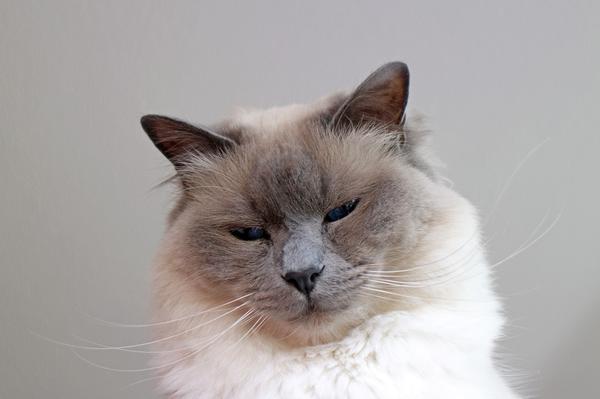
What's the deal with cats and their mysterious purring?
Ever wondered why your feline friend cranks up the volume when you scratch their belly? 🤔
Feeling like Sherlock trying to crack the code?
Well, let's put on our detective hats and figure it out together.
Ready?
Let's dive in.
How Do Cats Purr?
Cats purr by rapidly contracting and relaxing their laryngeal muscles, creating a soothing hum. The exact trigger for purring remains a mystery, but scientists have found that cats possess a unique brain gadget called a neural oscillator, which helps them maintain a rhythmic purring pattern.
Cats purr, you know - it's just what they do.
The sound, oh man, it's like a soothing balm, comforting you with its little motor-like hum.
Back in the day, experts thought only certain cats had this special talent, but geez, turns out most of them do.
And boy, are they good at it!
Now, let's dig into the good stuff.
Here’s the lowdown on how purring works:
When cats purr, their laryngeal muscles go rapid-fire, tightening and easing up in an impressive workout routine for those vocal cords.
But guess what?
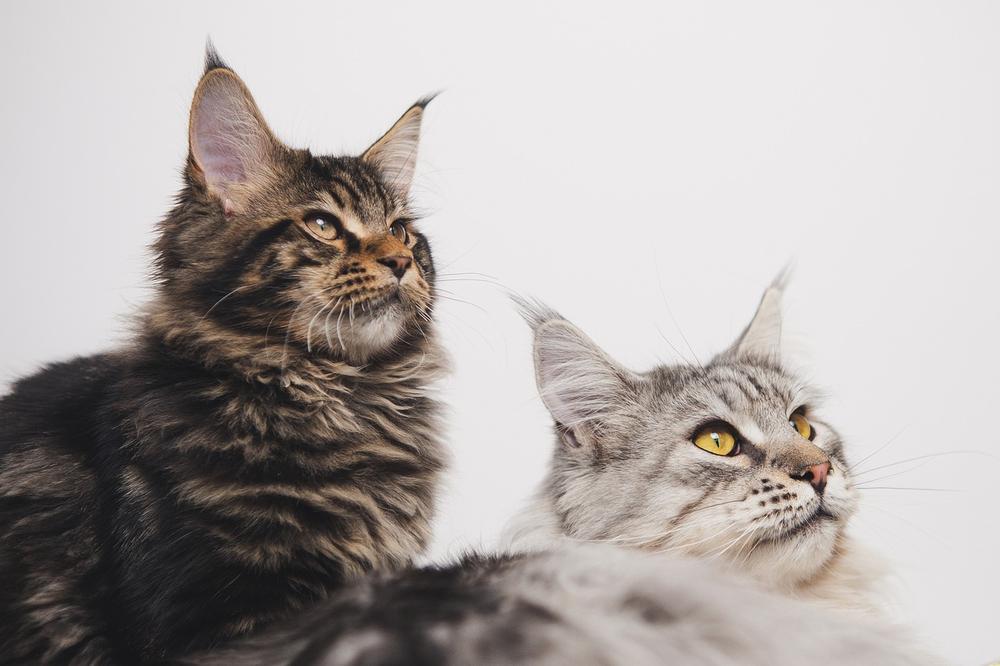
The scientists aren't quite sure what the heck sets off this purring symphony in our feline friends.
There's still some mystery to unlock there, keeping us on our toes.
No worries though, science has stumbled upon some intriguing findings along the way.
One cool thing they discovered is that cats have this unique brain gadget called a neural oscillator.
Fancy talk, right?
This baby helps cats stay hip with a happenin' rhythm, keeping their purring game strong.
Purring can hit anywhere between 25 and a jaw-dropping 150 Hertz.
It's mind-blowing stuff, I tell ya, and we humans can't help but be captivated by it.
And here's where things get even more fascinating...
Purring isn't just soothing, it can actually have healing effects!
Purring Can Promote Healing
Cats are more than just adorable fluffy creatures, they actually possess some amazing healing powers.
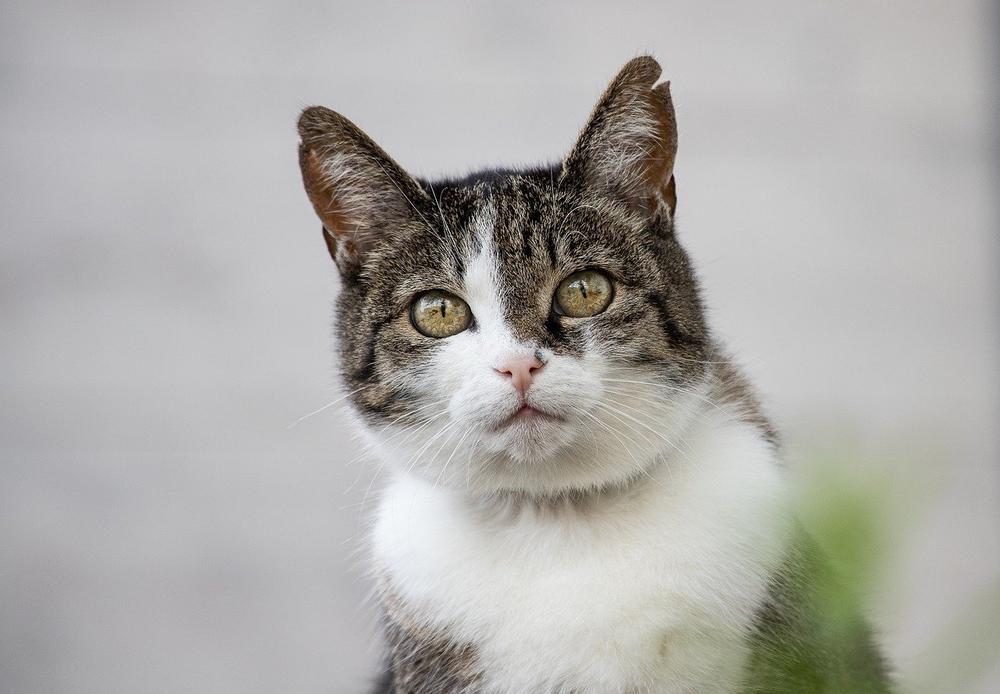
Here are four purr-worthy facts about how purring can promote healing:
- Purring is like a natural painkiller for cats. The vibrations created during purring release endorphins that act as natural pain relievers. So next time your cat purrs when you rub its belly, it's not just showing affection, but also soothing any discomfort it may have.
- The frequencies at which cats purr have been shown to stimulate bone regeneration and tissue rejuvenation. It's like having a mini surgery on the go! So if your feline friend gets into a scrape or has a bone fracture, don't be surprised if you catch them purring up a storm.
- Purring takes energy, but it's a small price to pay for survival. Cats purr to increase their chances of surviving falls and speed up post-surgery recovery. So the next time you see your cat purring after a trip to the vet, know that it's doing its part to heal faster.
- Not only do cats benefit from purring, but humans can too! Petting a purring cat has proven stress-relieving benefits and may even help lower the risk of stroke or heart disease. It's no wonder cats and humans have such a special bond.
So there you have it, purring is not only cute but also has the potential to stimulate healing in both cats and humans.
So give your furry friend some love and enjoy the purr-fect health benefits! 😺
And now, let me dive deeper into the fascinating world of cat purring, exploring why they engage in this behavior and how it's linked to their own well-being...
To Heal Themselves and Relieve Pain
Cats purr as a natural self-soothing mechanism, not just to annoy us. Purring helps them cope with stress, injury, and even death. It's their unique way of finding comfort and healing, with researchers linking it to pain relief and bone repair.
Cats purr for a reason, you know.
It's not just some random noise they make to annoy you (although it might feel that way).
Actually, cats use purring for comfort and even pain relief. Yes, you heard me right.
When cats purr, it's like their very own self-healing session.
You may notice your cat purring when it's stressed, injured, or even facing death.
And no, it's not because they're happy about it.
It's more like their way of dealing with the situation at hand.
Imagine it as the feline version of shedding tears.
When kittens are separated from their mother, they cry.
When we humans get hurt, we cry too.
Well, cats don't cry, they purr.
It's how they calm themselves during tough times. Researchers have linked purring to bone repair, pain relief, and all in all healing.
So next time you hear your cat purring, remember that it's not just a cute sound.
It's their way of taking care of themselves.
And did you know, there's even more to cats' purring than just self-healing?
Let me explain further...
As a Way for Mother Cats and Kittens to Communicate
| Communication Method | Description |
|---|---|
| Purring during nursing | Mother cats purr to bond with their kittens and establish a sense of comfort and security during nursing. The vibrations of the purring also help guide the kittens towards the mother's milk. |
| Gentle purring touch | Mother cats use a softer and more delicate purring sound to communicate with their kittens. This gentle purring touch conveys reassurance and affection. |
| Purring during grooming | Purring is employed by mother cats while grooming their kittens to express affection and reinforce the mother-child bond. It also helps relax the kittens and fosters a sense of trust. |
| Purring as a call for attention | Kittens use a high-pitched purring sound to attract their mother's attention, especially during feeding time. The distinct purring pattern serves as a signal for the mother to provide nourishment and care. |
| Purring for comfort | Cats, both mother cats and kittens, often purr to soothe themselves and find solace in stressful or unfamiliar situations. The repetitive sound of purring helps create a calming effect and provides a sense of security. |
| Purring during playtime | Kittens may purr while playing with their littermates or interacting with their mother. This purring is a way to express excitement, happiness, and contentment during these bonding activities. |
| Purring as a reciprocal gesture | Mother cats may purr in response to their kittens' purring, reinforcing the bond between them. This reciprocal purring serves as positive reinforcement and further strengthens the mother-child relationship. |
| Purring during sleep | Cats, including both mothers and kittens, often purr while sleeping. This purring can be a self-soothing mechanism and helps them relax, ensuring a peaceful and comforting sleep. |
Mother cats use purring as a way to communicate with their kittens. It's the perfect means for them to connect. From an early age, mother cats purr in specific ways to get their point across.
They are pros at purring!
And you know what?
Kittens also purr!
Yeah, it's true.
They use purring to catch their momma's attention and create that special bond.
Especially during feeding time, purring is like music to their ears.
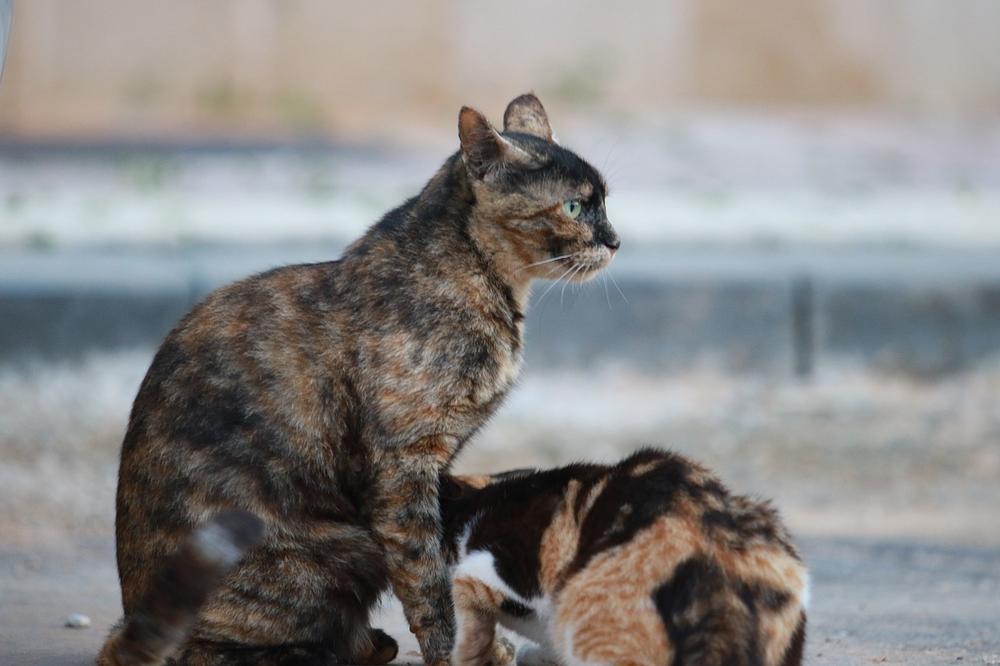
You won't believe this...
The vibrations produced by a mother cat's purr actually help the kittens find their way to their food station.
It's like a guiding purr-fection!
But here's the deal: Purrs don't go far. Nope, they're not designed for long-distance communication.
Purring is meant for those nearby to hear.
That means if you want to be part of the conversation, you have to be close.
So the next time you see a mama cat purring, know that she's talking to her little ones.
It's the language of love and nourishment, all wrapped up in one soothing rumble.
To Greet Other Cats
Cats use purring as a friendly gesture to greet other cats, expressing their happiness and absence of threat. Purring serves as their unique way of saying Hello and establishing a friendship with fellow feline companions.
When cats meet other cats, they often exchange comforting purrs.
Cats possess the remarkable ability to conceal their cries in their purr, causing us humans to feel nurtured.
But purring goes beyond seeking comfort - it's a form of communication that conveys different emotions and needs.
In positive social situations - like nursing, grooming, relaxing, or simply being friendly - cats purr to demonstrate contentment.
And there's more...
When cats encounter familiar felines, they may purr as a way to greet them, showing friendliness and an absence of threat.
It's intriguing how purring plays such a crucial role in the world of our feline companions.
You can interpret purring as cats proclaiming, Hey there, I'm delighted to see you! 😀
So don't be taken aback if you hear your cats purring up a storm when they meet their fellow furry pals.
It's their distinctive way of saying, Hello!
Let's establish a friendship!
Indications of Feline Contentment
The act of purring is a display brought forth by cats, and it signifies their contentment, tranquility, and security.
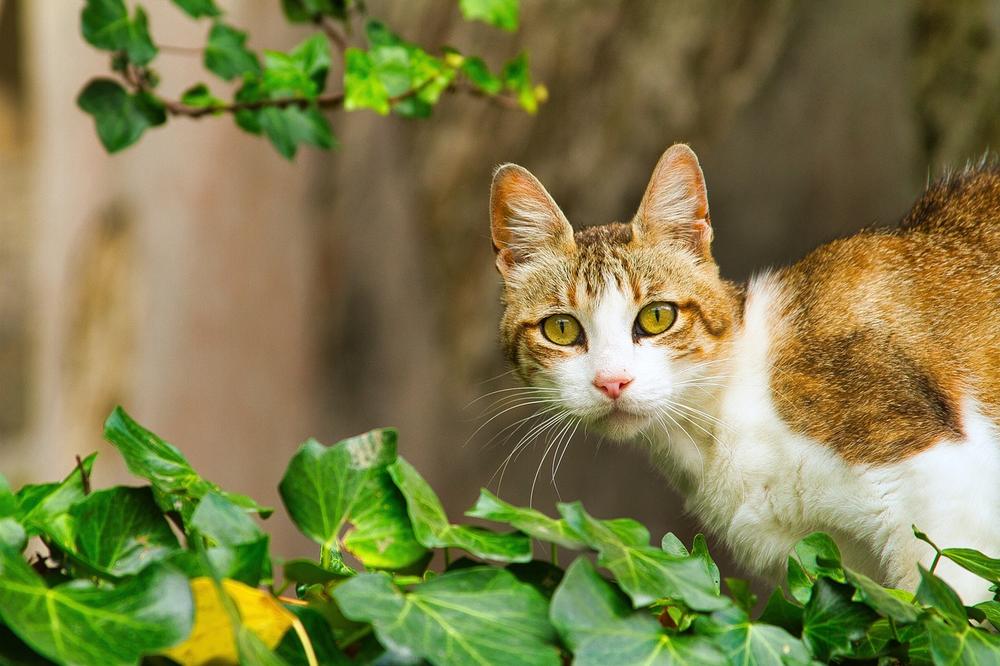
This rhythmic sound is a reliable gauge of feline satisfaction and general welfare.
When you hear your furry companion rumbling away with a melodic purr, it depicts their inner state of happiness and fulfillment. Whether they are curled up in your lap or nestled cozily in their preferred spot, their harmonious purring serves as an affirmation of their emotional warmth and all in all state of physical ease.
So, bask in the beauty of this melodious melody, as it unveils the true essence of cat bliss.
Your Cat Wants Something From You
We all know that cats can be mysterious creatures, but when your cat purrs, it's trying to tell you something important.
- Attention-seeking: If your cat is purring loudly and rubbing against your legs, it might be asking for some love and attention. Take a break from what you're doing and give them a good petting session.
- Hunger: Cats are known to purr when they're hungry, especially if their food bowl is empty. So if your kitty is purring near the kitchen or staring at their bowl, it's time to feed them.
- Playtime: Just like humans, cats need exercise and mental stimulation. If your cat is purring and bringing you their favorite toy, it means they're ready for some playtime. Get that feather wand out and engage in a fun game together.
- Affection: Cats purr when they're enjoying your company and want more of it. If your cat curls up next to you or on your lap and purrs softly, it means they trust and love you. Return the affection with gentle strokes and cuddles.
- Specific needs: Sometimes cats will purr in a higher pitched and urgent way when they have specific needs. They may purr loudly near their litter box, indicating that it's time to clean it. Or they might purr while looking out the window, expressing their desire to go outside.
Understanding your cat's purring is all about paying attention to their behavior and cues.
By listening and responding, you can develop a deeper bond with your feline friend.
And if you are truly curious about why our furry friends purr when you pet them, I invite you to dive into the fascinating world of feline behavior with me.
Learn the reasons behind this enchanting phenomenon in my blog post on Why Do Cats Purr When You Pet Them.
Enter a realm of discovery and deepen your understanding of your cat's purring ways.
Embrace your curiosity and let my article unravel the secrets of feline affection.
Understanding Your Cat's Stress-Induced Purring
Cats don't just purr when they're happy. Surprisingly, they also purr when they're stressed. It's their way of seeking comfort and support during nerve-wracking situations or when they feel scared. Purring helps them calm down and regain their composure.
Sometimes, cats purr like they're on the verge of winning a Grammy.
Seriously, they purr constantly.
But did you realize that purring is more than just expressing happiness?
Let me enlighten you.
Cats also purr when they're stressed, believe it or not.
Yes, you heard it correctly.
Stress can trigger purring in cats.
It's not always a positive sign.
Whenever your fluffy buddy finds themselves in a nerve-wracking situation, such as going to the vet or being in an unfamiliar place, their purring serves as a means of self-comfort and seeking reassurance from you. It's like a plea for support, saying, Hey, I need you by my side.
And here's something fascinating...
Not only do cats purr when they're content, but they also purr when they're hungry, injured, or even frightened to the core!
Purring is their go-to technique for soothing themselves.
Imagine this:
Your cat exploring a new environment or getting startled, what does it instinctively do?
You guessed it—purrs!
It's essentially asking for help to calm down, exclaiming, I'm freaking out, help me find serenity!
The same goes for those dreaded visits to the vet or moments of jitters.
Purring allows cats to settle their nerves and regain their composure.
So, the next time you hear that comforting purring melody emanating from your cuddly companion, pay attention. They might be literally purring away their worries. 💆
The Power of Cats' Healing Purr
Key Takeaways:
- Purring is produced by cats' larynx and diaphragm muscles.
- Most cats can purr, contrary to previous belief.
- Science hasn't identified the exact trigger for purring.
- Cats have a neural oscillator in their brain associated with purring.
- Purring has therapeutic effects and promotes healing in cats.
- Purring stimulates bone regeneration and tissue rejuvenation.
- Cats purr at a frequency of about 26 Hertz, aiding in tissue regeneration.
- Petting a cat has stress-relieving benefits for humans.
- Purring can lower the risk of stroke or heart disease in humans.
- Purring aids in pain relief and bone repair for cats.
- Purring is innate in cats and can be observed from a young age.
- Cats purr when experiencing stress or injury to soothe themselves.
- Cats purr in various emotional situations, such as when dying or being euthanized.
- Kittens use purring to communicate with their mothers and attract attention.
- Purring helps kittens bond with their mothers and locate them for nursing.
And that wraps up today's article.
If you wish to read more of my useful articles, I recommend you check out some of these: Why Does My Cat Wag Her Tail While Purring, Why Does My Cat Like Her Nose Rubbed, Why Does My Cat Purr Constantly, Why Does My Cat Lay on Me and Purr, and Why Does My Cat Purr and Bite Me
Talk soon,
-Sarah Davis